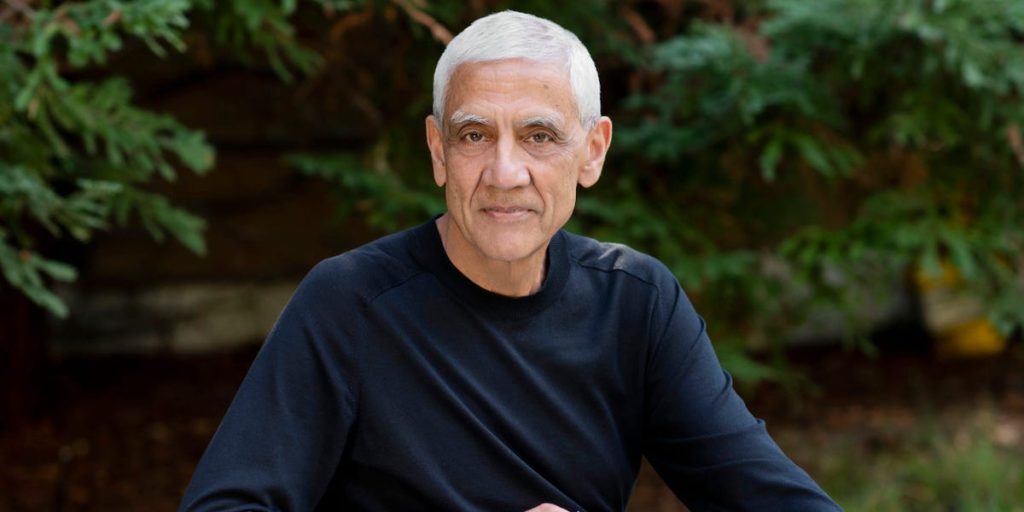When OpenAI, the now sizzling hot startup behind ChatGPT, switched from a non-profit to “capped-profit” company in 2019, Vinod Khosla, one of the most successful venture capitalists in Silicon Valley history, boldly stepped forward with the first check.
His firm invested $50 million, twice the size of any investment Khosla Ventures had made during its 15-year history.
Khosla has been a big believer in artificial intelligence as a transformative technology for at least a decade; He wrote two eerily prescient essays in 2012 about why doctors and teachers could easily be replaced by AI.
But then at the beginning of this year, Khosla saw a flood of investors suddenly want to seemingly back any AI company they could get their hands on.
“I think most people came back from Christmas break saying we missed this boat, now let’s get in a small row boat and paddle hard,” Khosla said in an interview with Insider.
That is the moment Khosla says he decided to do what has served him so well during his long career – row the opposite direction by pulling back on most AI investments.
“Most of these valuations in AI that are in the hundreds of millions or billions of dollars will correct themselves because there will be more of a winner take all phenomena than we realize,” Khosla explained. “Investing in momentum is a bad idea.”
Khosla, now 68, founded Sun Microsystems in 1982 and also played key roles in the early days of AMD and Juniper Networks. He spent 18 years at the storied firm Kleiner Perkins Caufield & Byers (now called Kleiner Perkins) before launching his own fund, Khosla Ventures, in 2004. There he made early bets on Affirm, DoorDash and Instacart, which have helped catapult his net worth to $6.2 billion, according to Forbes.
Khosla spoke to Insider during an extended conversation at the recent Wall Street Journal Tech Live in Laguna Beach where he was a featured speaker. While most guests of Khosla’s stature at big conferences quickly move in and out, Khosla stayed long into the night. He was happy to answer questions from young founders excited to fist bump with a VC legend – Khosla politely declined overtures to shake hands.
Khosla says only a few winners will emerge in AI
Khosla is one of the few top VCs to be actively investing in the current market who has also worked during other transformative cycles that he thinks will rival AI – social media, the rise of mobile, and the personal computer.
“If you go back to the eighties there were tens of thousands of software companies, but only a few large winners,” Khosla said. “Most people and most companies lost everything. I think the same thing will happen here.”
Instead of AI, Khosla says he is “making lots of fundamental investments in esoteric areas.”
The firm recently backed a startup still in stealth he says can help discover more mineral resources, and he says lithium and cobalt has become a major focus. He is also interested in companies making airplanes and cars more efficient.
“We’re investing heavily in those but those aren’t overhyped,” Khosla said.
Funding for AI companies climbed 27% globally in the third quarter compared to the year before even as overall deals for startups fell 31%, according to PitchBook data compiled for Bloomberg.
Khosla won’t say which AI companies he has passed on, but Khosla has not been a part of recent mega rounds for Anthropic (now seeking funding at a reported valuation as high as $30 billion), character.ai. (seeking a valuation of more than $5 billion), Hugging Face ($4.5 billion valuation) or Adept (reported $1 billion valuation).
Khosla is careful to point out he is not avoiding all AI startups. The firm invested earlier this year in Replit, a generative AI tool for software development, at a $1.16 billion post-money valuation.
There is also OpenAI itself, which arguably has benefited as much as any startup from the AI hype. It is in talks to sell existing shares at an $86 billion dollar valuation, Bloomberg reported.
Khosla declined to comment on the offering or confirm or deny any reported valuation, but he did say that OpenAI is one example where he thinks the hype is justified when you look how quickly the company is growing; It recently went from a $1 billion to $1.3 billion annualized run rate in the span of just a few months, The Information reported.
“Investing in fundamentals is different than being a sheep and following the herd,” Khosla said. “I’m pretty arrogant about not following what others are saying.”
Read the full article here




